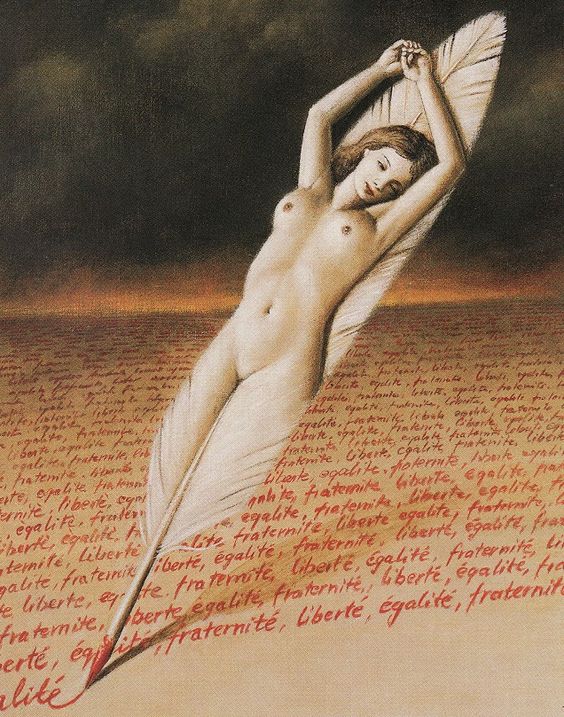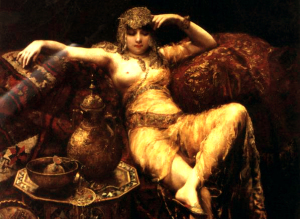
What power has language other than what we give it?
An argument that I have heard over and over in regards to political correctness and slurs.
Sure, but wouldn’t you want your words to be powerful?
With our words we bear witness, we pay our respects to events that might have been totally out of our control, but impacted others in an insurmountable way. We have the opportunity to create entire worlds with our words, to invoke emotion and to create beautiful things.
What people try and do is remove the power from certain words by using them as liberally as possible, as if the intensity of hurt has an expiration date, when all they are achieving is disrespect to those people for whom those words still hold influence.
Language is a strange thing. Symbols and sounds that shape our thought and our experience of reality, given meaning by outside influences, and then by our experiences. Sure, we translate words in our own way, transform them to back up what we already know. Isn’t there a certain arrogance in not allowing others to display hurt and anger, silencing and dismissing them as politically correct, as if that itself was a slur?
The Other
‘Otherness’ is a fundamental category of human thought. From the time that we are infants, we can recognize things outside of ourselves, that are not a part of ourselves, this is a natural part of our growth. However, social identity is not a natural process, as it involves the idea of the ‘other’ on a larger scale, of entire groups based on whatever set of characteristics that we decide on.
|
So what does this mean? We create a group, we label them (y’know, with words) and in that action of doing so we perpetrate a sense of uncertainty because we cannot ever truly know something that we are not. We also know that the driving force of hate is usually fear of the unknown.
I’ll leave you to put two and two together.
Personally, if I found that I was using a word that was offensive for a group of people, it doesn’t matter if I have those same feelings, I stop using that particular word out of respect. I don’t tell them to ‘get over it’ because hey, out of the millions of words that I have at my disposal, swapping a few out here and there isn’t going to kill me. But you know what? Not doing it might kill them. Because guess what? Words have power, and we have the responsibility to do beautiful things with it, rather than hurting people.

I agree, a single word can have a massive negative impact on someone reading what the writer has said. The main area I find this occurring, is between the different Generations, it always is interesting to find what other generations younger than me, find incorrect, or a slur. I am always happy to be told that a word is not PC/a slur, as sometime if I’m not told, I may not know till I am told. My life code, is to live as I see who I am, but part of that code is not to do harm to others, and that includes my choice of WORDS, either spoken or written.
One last ting, call me old fashion here, while I do not mind the use the word ‘FUCK’, I believe it is used to much these days, both out of meaning and also context. But that’s my generation.
LikeLike
“Personally, if I found that I was using a word that was offensive for a group of people, it doesn’t matter if I have those same feelings, I stop using that particular word out of respect. I don’t tell them to ‘get over it’ because hey, out of the millions of words that I have at my disposal, swapping a few out here and there isn’t going to kill me. But you know what? Not doing it might kill them. Because guess what? Words have power, and we have the responsibility to do beautiful things with it, rather than hurting people.”
When you encounter someone who is offended, you automatically feel that they are authentic. That they want the word usage stopped because it hurts them in some real way.
I guess I’m a lot more cynical than you are.
My first thought when encountering the same situation is that that someone is seeking to exercise control over others. “I’m offended, thus you have to stop using that word. I seek control over your use of language.”
I also have serious reservations about the personal responsibility involved in such a situation. If you were to insult me, I would have one of two reactions – I’d either be offended or I’d blow it off. Ultimately, my reaction is my decision and my responsibility. In a very real way, you cannot offend me; it’s my choice to be offended.
If you are correct about authentic pain being caused, however, I’m not sure trying to get others not to use offensive words is an effective strategy to end pain. There will always be people who actively seek to hurt others. Instead, why not teach the perpetually hurt individual how to choose not to be offended? Whereas the former is not likely to result in any kind of permanent solution, the latter can terminate all future pain.
LikeLike
I understand where you are coming from, as more and more people are speaking up about things that they find to be offensive, it can sometimes seem like people are just ‘jumping on the bandwagon’ of social justice. However, it isn’t really up to us to police how and when people are allowed to be offended, as we have no control over their past experiences. Teaching them to react in a way that is palatable to us is just us trying to take control over the situation, no?
The thing that I always come back to is the fact that the language that we use shapes our experience, and the example that I use is the word ‘whore’. This slur is commonly used in a lot of different situations, mainly dehumanising or ‘othering’ a group of people who are already at risk of harm. The normalization of this word being thrown around in other contexts creates an almost comical caricature of what a ‘whore’ actually looks and acts like, which then affects how we are treated by our clients, because we aren’t seen as real people. The same can be said of racist slurs, transphobic slurs, degrading language towards women among other things. It’s all well and good to teach people to not be offended, but being offended isn’t where it ends for oppressed people.
LikeLike